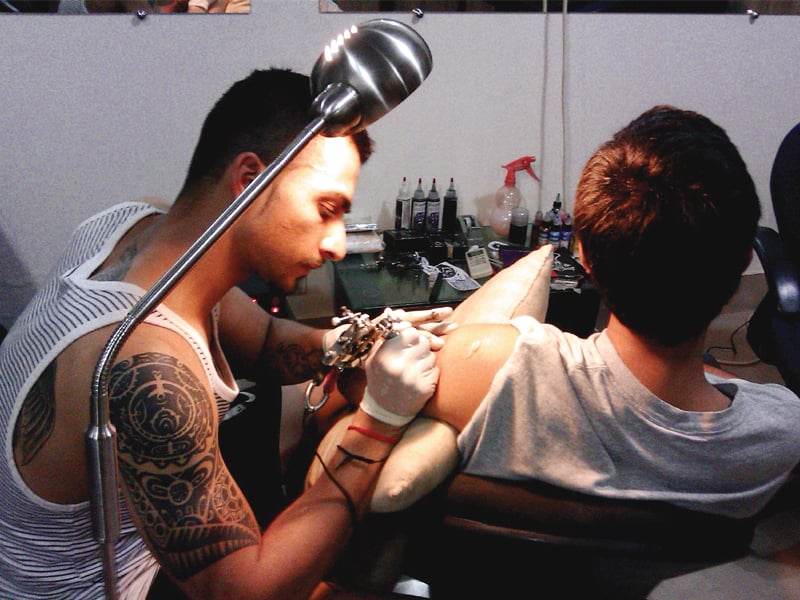
Zohaib Amjad Butt, who runs a tattoo studio in Lahore DHA’s Y Block, recounts one such encounter: A girl accompanying a client once forced him into an argument about tattoo art being forbidden. “I offered her simple logic: How could an art form, which can help people deal with scars or remind them of a motto they want to live by, be sinful?” The discussion went on for about two hours and ended with the girl being convinced in Zohaib’s argument. Ironically, the tattoo she had come in for was no more than two words on her little finger. “More time is spent explaining and convincing than really working,” complains Zohaib, who spent three months in Bangkok training in tattoo art.
“Ninety per cent of people come with the concept that tattooing is forbidden,” says Zohaib. “They are sceptical and usually ask me about tattoos and religion.”
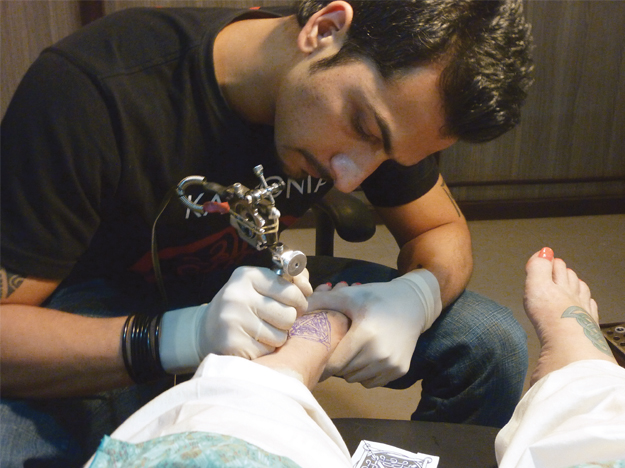
“My argument is that, how can something that has no social, psychological or physical disadvantages be unlawful?” He explains further, “It’s just an imprint, a result of ink penetrating under the first multiple layers of your skin. It isn’t covering your skin. Mehndi (henna) usually gets absorbed in the same part of one’s skin as a tattoo. The only difference is that a tattoo stays on longer than mehndi. I tell my clients that the purity of your prayers is based on your conscience and intent, and not the tattoo on your body.”
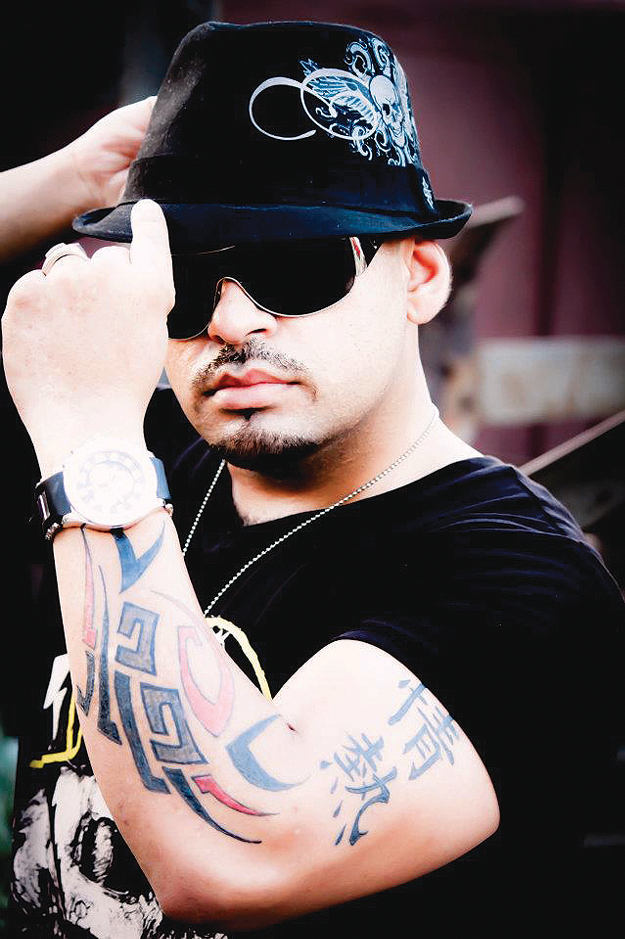
It does not end there either. The clients never come prepared and Zohaib usually has to help them decide on tattoo ideas. “Most people who come in aren’t really that creative. They want tattoos of either their name or their spouse’s name. As many as 50 per cent do not know what they want to get,” says Zohaib. “I usually interview the clients and then suggest something suitable for their personality.”
“I tell them not to hide anything from their tattoo artist or their doctor as the repercussions will last forever,” Zohaib remarks jokingly. “I also advise them not get something they would regret later.”
“Teenage boys usually come in asking to get the name of their girlfriends tattooed into their skin. In most cases, I see them again in a few months when they show up and ask me to remove it,” says Zohaib. “I tell them to get a tattoo they will always appreciate or something that would spark a positive sense of self, and to avoid getting skulls or bones or negative words.”
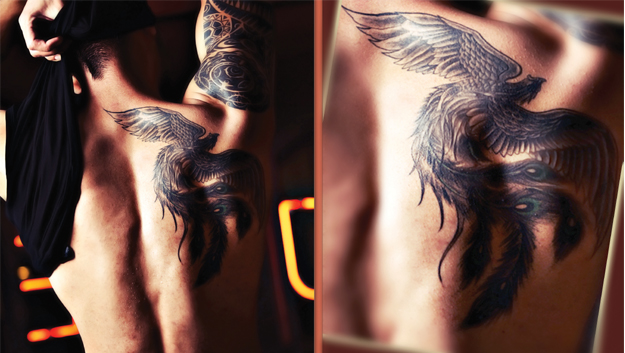
“While most of them initially don’t know what to get, you can usually predict what they would finally settle on,” says Karachi-based tattoo artist Asif Raza. “Girls in their early 20s are fond of butterflies, floral designs and zodiac signs,” says Raza. “The guys are more interested in dragons or the names of their spouses written in kanji — a system of Japanese writing using Chinese characters.”
Alizeh, who got a butterfly tattoo her wrist, says she didn’t want to opt for something flamboyant. “Too much can draw too much judgment, particularly in Pakistan. This is just for me and my friends and family to see.”
Raza, who runs a tattoo parlour in Karachi, says that he gets a fair share of clients who want to get tattoos of their favourite celebrities, music bands and even African and Indian tribal symbols. “The tattoo trend grows with a developed culture. Tattoo art is a recent phenomenon in Pakistan and it will be sometime before people are completely comfortable with the idea of getting a tattoo,” says Raza.
Zohaib, who has a tattoo of a coffin and a clock with the word ‘ashes’ written in Japanese letters, says that the hardest part is getting your first tattoo. “Many people consider it a painful process but tattoo enthusiasts liken it to a buzz,” he says. “Most people get hooked on tattoos after getting their first and usually keep coming back for more.”
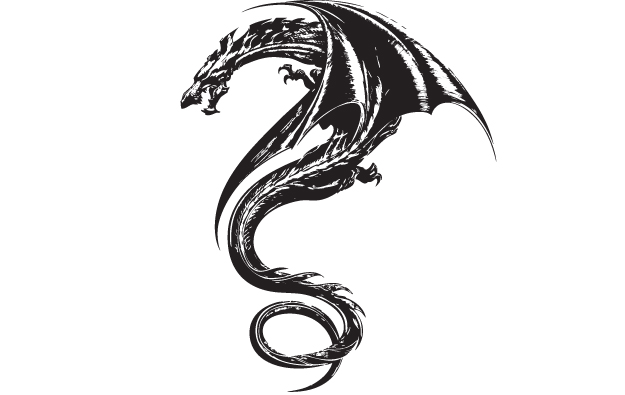
Nabeel, another tattoo enthusiast, has had a Polynesian symbol, Japanese lettering and a chain-themed arm band done by Zohaib. He’s also had three tattoos done in the US, and says that while local tattoo artists aren’t up to Western standards, they are definitely making progress. “One thing I’ll credit Zohaib with is for actually sitting with clients and discussing the pros and cons of the tattoo they want to get. Personally, I feel that people should avoid getting tats with negative or religious connotations.”
Tattoos have also become very popular among those suffering from skin discoloration, injuries or surgical scars. Zohaib has had some clients who have had visible scars on their faces or Vitiligo (a disease which causes discoloration). “Finding a colour matching ones’ skin colour is hard and can add to the cost,” he says. “A lot of women now also prefer getting tattoos to hide their stretch marks instead of undergoing tedious surgical procedures.”
Zohaib, who has inked the skins of famous people like stage artist Nargis, Pakistani drummer Kenny and Roxen’s lead guitarist, actually quit the army to become a tattoo artist. He began his training with Lahori tattoo artist Naveed. “This was two years ago. Naveed had been doing it for 15 years at the time, but a week into the training, Naveed had an accident and then I had to leave. I went to Bangkok, trained there for about three months and came back and worked at Naveed’s place, known as Xtra, for about three months before starting my own parlour.” Zohaib has been running Pitch Black Ink (a tattoos and piercing studio) for about 18 months now.

Raza is relatively new to the business, “I studied fine art from Iqra University, so making tattoos was not so hard for me. I practiced for about four to six months before starting out professionally,” he explains. Raza recently opened his own parlour, Devil Art’s studio, in Karachi about four months ago.
Tattoos are priced according to size. In Pakistan, it costs Rs1,800 to Rs2,000 an inch. Tattoo artists import ink from a US based company, while needles and other disposables are purchased from China.
Once a rare sight in Pakistan, this ink on the skin, in all its desi variety, is steadily growing in its demand and soon, it may just give henna a run for its money.
Published in The Express Tribune, Sunday Magazine, March 17th, 2013.
Like Express Tribune Magazine on Facebook to stay informed and join the conversation.
COMMENTS (35)
Comments are moderated and generally will be posted if they are on-topic and not abusive.
For more information, please see our Comments FAQ

1732274008-0/Ariana-Grande-and-Kristin-Chenoweth-(1)1732274008-0-165x106.webp)



1724249382-0/Untitled-(640-x-480-px)1724249382-0-270x192.webp)

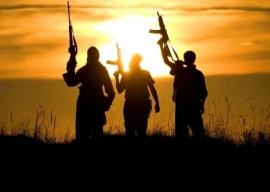
1732270499-0/Express-Tribune-(7)1732270499-0-270x192.webp)
1732267715-0/BeFunk_§_]__-(32)1732267715-0.jpg)







From Sahih Bukhari..... Narrated Ibn Umar Allah's Apostle said, "Allah has cursed such a lady as lengthens (her or someone else's) hair artificially or gets it lengthened, and also a lady who tattoos (herself or someone else) or gets herself tattooed.
In al-Saheehayn it is narrated that ‘Abd-Allaah ibn Mas’ood (may Allaah be pleased with him) said: “May Allaah curse the women who do tattoos and those for whom tattoos are done, those who pluck their eyebrows and those who file their teeth for the purpose of beautification and alter the creation of Allaah.” (al-Bukhaari, al-Libaas, 5587; Muslim, al-Libaas, 5538).
From Sahih BUkhari ....Narrated 'Alqama: 'Abdullah cursed those women who practiced tattooing and those who removed hair from their faces and those who created spaces between their teeth artificially to look beautiful, such ladies as changed what Allah has created. Um Ya'qub said, "What is that?" 'Abdullah said, "Why should I not curse those who were cursed by Allah's Apostle and are referred to in Allah's Book?" She said to him "By Allah, I have read the whole Qur'an but I have not found such a thing. 'Abdullah said, "By Allah, if you had read it (carefully) you would have found it. (Allah says:) 'And what the Apostle gives you take it and what he forbids you abstain (from it).' (59.7)
@lime: You think pierced belly-button is a new thing??? huh?
@Shikayati Tato: Very well said... if only we can adopt one quality... being truthful/honesty.
I have total three tattoos on my skin 1st on right forearm depicting a couple in ballroom dance second on right wrist "madonna" in cursive third is an ambigram i got last week , a combination of my name and my wife;s name . It is an art, think of it as art. Do not get it at places you would end up getting oggles and stares in public places and interviews As for the logic that it will make your prayers unheard, and anything other than pure water, really, why to get blood transfusions, and medical injections, isn't the liquid injected in the skin(the one on the bum or arm is in the skin only) it is indeed the purity of heart and not these shenanigans that are what makes your prayers heard as for old age....yes when i get old, my grandchildren would ask me ... and i shall have a story to tell of the time i was rich, and crazy. and got my skin inked while those non tattooed will look like any wrinkled, sagged old man/woman i will look like a more interesting and more cool wrinkled sagged old man it is only this attitude why muslims are in a state what they are(minus the saudi petroleum and that was not explored by them). arguing over the size of the "Meswak" when the whole idea is about cleaning the teeth
i work out of Pak, my boss got lots of them, few of my colleagues have got them on their bodies and they look really good. i would have gone to get one but the permanent thing made me to rethink for tattoo.
All these people saying it looks bad...what are their opinions I wonder about henna. If you find one bad to look at, you should also find the other bad to look at. And if that is not the case: if you find tattoos "ugly" and henna is fine then it is time for some introspection and then some honesty about what this repulsion is REALLY about.
Why should one pattern on someone's skin repulse you and the other not?
I mean look at that Phoenix on the guy's back...it's beautiful. Far more prettier than any henna pattern I've ever seen. If the same Phoenix were drawn with henna then I bet everyone would be marveling at how wonderful it is.
@huma: I don't know about how it works in the UK, but I do know assuming the upper crust of society would never get a tattoo is completely off base. Here in the US, many of my peers have tattoos and all come from white collar backgrounds. The issue is when the tattoo is visible in a professional setting. One of my friends has one on her hip, another on his shoulder, another on her shoulder blade. All from respectable desi backgrounds and working in white collar positions. That's a broad generalization to make. Granted the type and location and perhaps even number of tattoos visible will vary (you won't generally find a white collar worker with an entire 'sleeve' of tattoos as most employers will take issue with it). I eventually want to get a small tattoo somewhere that isn't visible to my employer. That doesn't make me 'classless.' You can dislike the tattoo itself and choose not to get one, but don't judge those who do or assume they are from a low class background.
@Ridzie: Agree with your response to huma.... except tattoo isn't really a gender thing. most people who are against them don't care if it's a woman or a man with a tattoo.
Personally, I plan to get a tattoo eventually. As far as others finding it distasteful or ugly or judging me based on it, I don't care and neither should anyone else.
If you want a tattoo, you pretty much can get from this place search devil art karachi on google
I was in bangkok sometime back. There was a tatoo parlour close to the hotel I was staying. Everyday I walked infront of that parlour thinking each time I am going to have a tatoo on my body. One fine day I stopped by to get it done and just when I was about to, a thought came across my mind that I should'nt. I at once, told the guy to stop without assigning any reason. When I came back home I discussed it with some scholars of Islam about its status. Majority of the scholars came up with the argument that once we get any form of liquid other then pure drinking water under a layer of our skin one cant perform wadzu, namaz and other pillars of the religion such as pilgrimage. It is simply for the reason that one does'nt know the ink used in process actually carry non-toxant contents. I dont want to issue any fatwa (judgement) or anything against this form of 'western art' but there are a lot more positive things we can inherit from the western culture like, tolerance, harmony, peace and above all prosperity & progress.
Its idiotic of the writer to say that tattoos can be compared to henna, which is temporary. It is simply insane to compare the two.
They look ugly and its been proven that most people live to regret getting these in first place. Tattoos are irreversible or will cause serious scarring when removed using lasers etc. You have been warned.
Tattoos are an old thing, i have a pierced belly-button. :)
Tattoos make us look
cooland handsome@zoro Hahaha...seems to be true. :D
The judgement - or the assumption that anyone has the right to judge anyone else - is our biggest issue I feel. I mean why do people replying here implying tattoos are a meaningless fad or a nuisance care about what someone else does to themselves? How can something someone decides to paint on their skin be a nuisance to you when it won't ever affect anyone else?
I simply don't get it.
@Ridzie:
I have expressed my personal opinion which I am free to do so. However, in no way or expression do I impose/force my beliefs on anyone else or in fact curtail (physically or otherwise) anyone else's expression to physically ink themselves. It's not intolerance, I just find it really unattractive.
@Mango : A tattoo which really means something to you would be worth keeping for your whole life. Any inspirational words or quotes, the name of your wife etc. Things like that. Besides, you can always have them removed if you don't like it. I for one think that if you can come up with something creative to have on your arm or your back (or wherever you fancy it), it can actually look pretty amazing.
Naveed had an accident ... really was that an accident or as if we aren't constantly chasing them ?
So that's where that Taliban dude got his tattoo....interesting...a clue...
I want a skull on my wrist like the death eaters
an hour ago I posted a Hadith on tatooeing..ET didn't publish... looks like the author of this article has got some serious tatooe
Disgusting to say the least... As far as the religion is concerned, your body cannot attain "cleanliness" (paki) until you get rid of tattoos from your body...they are an obstacle for ablution...
Symoblizing your beliefs on ur skin is nothing wrong. If they are unsightly, its still none of ur business. Not for your eyes they got them. I still say you ought to think half a dozen times before getting one because if the permanence (or not) but if someone gets it for themselves or someone else, it matters to them or they feel strongly about it thats why they got them. as for the white collars, tattooing and piercing arent allowed in organization but that doesnt mean they dont like it. Ive seen many who resented having to let go of their piercing and tattoos for their jobs. you remove judgement and control and youll see more of them than ud like to see. its a free world.
@shahnawaz and Ussama...let them be, its their life, no one is forcing it upon u. Live and let live! It's none of your business!
solely because it is..=) for good measures http://www.youtube.com/watch?v=k2WB_jcDUJE
Good to see Pakistanis becoming tolerant to tattoos among other things. Tattoos are common throughout the Arab world barring a few gulf countries so don't see whats the fuss about. If people want ink on their bodies its their personal matter and none of other peoples business.
Religion or no religion how can some one want to have some thing as permanent as tatto on thier body.. Even with mendi you start to dislike it on your sking after 4,5 days let alone have it for life.. It just look plain ugly!
I'm sorry - but they look unsightly and can you imagine how they'll look when these people age and the skin sags! eeek! Deary me, Pakistani's do have a tendency to import the worst of cultures and civilisations!
If you have a visible tattoo in England, you will struggle to find employment in a white collar profession. In the UK, tatoos on a whole are adopted by either those in the showbiz profession or those belonging to the underclass (Chavs) or those from the lower - middle working class. Very rarely would someone from upper-crust society (the occasional wild child being the exception) adopt the wearing of a permanently tag. In Pakistan, it seems the complete opposite and prove the age old adage that money does not buy class - well at least in Pakistan.
@Shahnawaz Well said! So what's next for this facebook generation? Flesh tunnels? The anticipation is killing me.
http://tribune.com.pk/story/503356/tattoos-may-increase-risk-of-skin-cancer-doctors/
I just think they look plain ugly!!
here we go! the pseudos in pk all bent upon to import another nuisance in PK